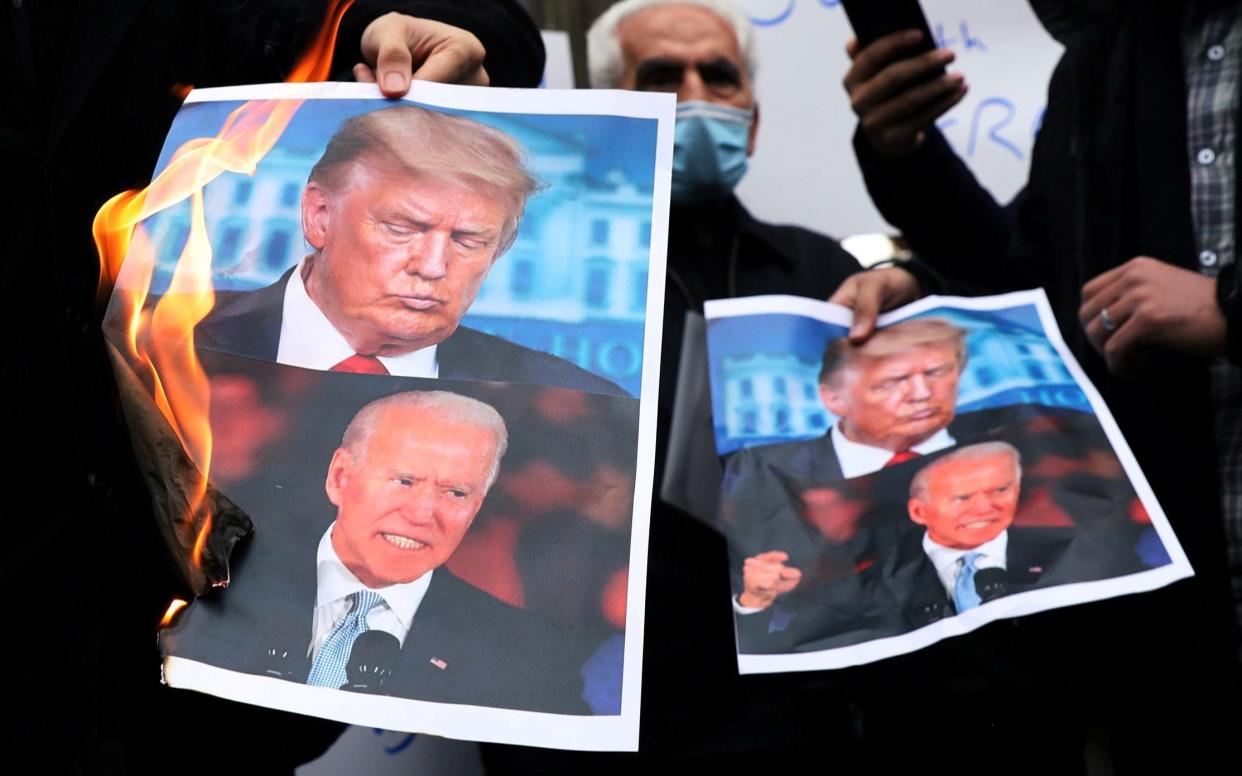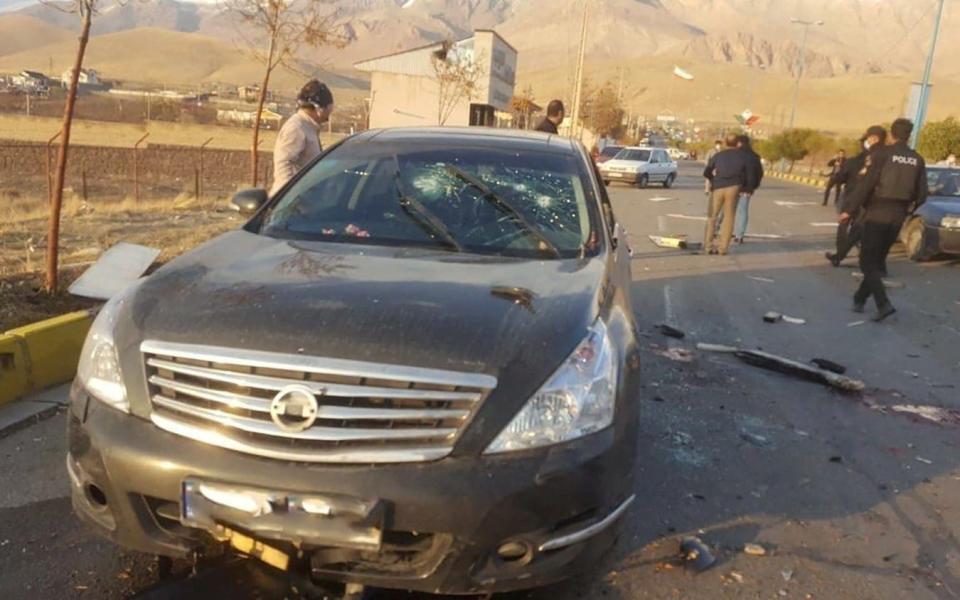Iran denies Revolutionary Guard commander killed in Iraq-Syria border drone strike

An Iranian commander was reportedly killed in a drone strike on the Syria-Iraq border over the weekend, coming days after the assassination of an Iranian nuclear scientist outside Tehran that Iran has blamed on Israel.
The Islamic Republic has been shaken after the Friday killing of nuclear scientist Mohsen Fakhrizadeh, and some believe Israel may increase targeted killings ahead of the January inauguration of US president-elect Joe Biden, who is more conciliatory towards Iran than current president Donald Trump.
Iraqi security and militia officials told Reuters on Monday that the Islamic Revolutionary Guard Corps commander, whose identity they did not confirm, was killed alongside three men travelling in the same vehicle as him.
Two officials told Reuters the vehicle was struck shortly after crossing into Syria carrying weapons from Iraq.
Israel has launched strikes against an array of Iranian and Syrian targets in Syria the past week, though there was no claim of responsibility for the drone strike said to have killed the IRGC commander, named in some reports as Muslim Shahdan.
Assassinations of Iranian figures will likely continue as long as the regime continues making threats to destroy Israel, though not all targets will be household names, said Alex Vatanka, director of the Iran programme at the Middle East Institute.
“I would struggle to come up with another name like Qassem Soleimani, who the Israelis could target in a bombshell act that would show its dominance in the intelligence war against Iran,” he said.
The head of the IRGC’s elite Quds Force, Soleimani was killed in an US airstrike in Baghdad in January.

“The trend going forward is likely to be less about symbolism and more about an assessment about who are pivotal players,” he said. But assassinations alone are not likely to significantly alter Iran’s strategic position, Mr Vatanka said. “There is just not enough evidence to suggest that Iran’s strategy relies on single individuals.”
But the apparent ease with which assassins are able to target Iranian figures both abroad and at home is an acute embarrassment to Iran's government, with the office of Supreme Leader Ali Khamenei reportedly ordering a review of the government’s protection units.
The government of President Hassan Rouhani has indirectly blamed the assassination on the IRGC, which reports directly to Ayatollah Khamenei.
"If their forces were only slightly more vigilant this assassination would not have happened," government spokesman Ali Rabiei said in remarks carried by state-run ISNA.
Amid this turmoil, foreign ministry spokesman Saeed Khatibzadeh said on Tuesday he was unaware of reports of an IRGC commander being killed on the Iraq-Syria border, adding that “it seems to be fake news," according to ISNA.
But Mr Khatibzadeh warned Iran would unleash “maximum pain” on Fakhrizadeh’s assassins, adding that the regime would not heed international calls for restraint.
The killing has raised the prospect of military confrontation in the final months of Mr Trump’s presidency and could make it harder for Mr Biden to fulfil his campaign promise to rejoin the Iran nuclear deal that President Trump abandoned in 2015.
On Tuesday, Mr Rabiei declared that parliament had no right to amend the nuclear agreement reached with world powers in 2015, after hardliners passed a bill demanding that Iran disregard all restraints on its nuclear programme.
Parliamentarians have been calling for an end to international inspections of the country’s nuclear sites in the wake of Friday’s attack.
The draft bill passed on Monday also called for Iran to pursue uranium enrichment of 20 percent, beyond the limit of 3.67 percent set by the deal.
Mr Rabiei however said adherence to the nuclear agreement was the responsibility of the National Security Council, who would decide whether to curtail inspections by the International Atomic Energy Agency, according to ISNA.

